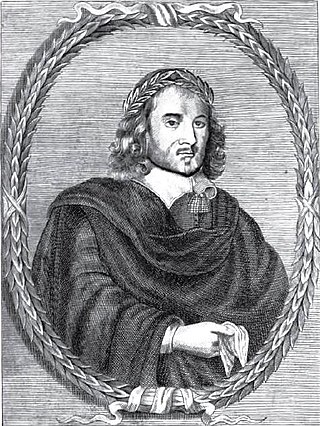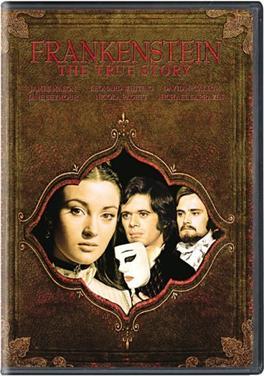Related Research Articles

Shakespearean tragedy is the designation given to most tragedies written by playwright William Shakespeare. Many of his history plays share the qualifiers of a Shakespearean tragedy, but because they are based on real figures throughout the history of England, they were classified as "histories" in the First Folio. The Roman tragedies—Julius Caesar, Antony and Cleopatra and Coriolanus—are also based on historical figures, but because their sources were foreign and ancient, they are almost always classified as tragedies rather than histories. Shakespeare's romances were written late in his career and published originally as either tragedy or comedy. They share some elements of tragedy, insofar as they feature a high-status central character, but they end happily like Shakespearean comedies. Almost three centuries after Shakespeare's death, the scholar F. S. Boas also coined a fifth category, the "problem play," for plays that do not fit neatly into a single classification because of their subject matter, setting, or ending. Scholars continue to disagree on how to categorize some Shakespearean plays.
Turk or Turks may refer to:

Thomas Middleton was an English Jacobean playwright and poet. He, with John Fletcher and Ben Jonson, was among the most successful and prolific of playwrights at work in the Jacobean period, and among the few to gain equal success in comedy and tragedy. He was also a prolific writer of masques and pageants.

{{[about||the soundtrack album by Chumbawamba|Revengers Tragedy (album)}}
Cyril Tourneur was an English soldier, diplomat and dramatist who wrote The Atheist's Tragedy ; another play, The Revenger's Tragedy (1607), formerly ascribed to him, is now more generally attributed to Thomas Middleton.
Thomas Goffe (1591–1629) was a minor Jacobean dramatist.

The revenge tragedy, or revenge play, is a dramatic genre in which the protagonist seeks revenge for an imagined or actual injury. The term revenge tragedy was first introduced in 1900 by A. H. Thorndike to label a class of plays written in the late Elizabethan and early Jacobean eras.
Revenge tragedy is a theatrical genre, in which the principal theme is revenge and revenge's fatal consequences. Formally established by American educator Ashley H. Thorndike in his 1902 article "The Relations of Hamlet to Contemporary Revenge Plays," a revenge tragedy documents the progress of the protagonist's revenge plot and often leads to the demise of both the murderers and the avenger himself.

The Revenger's Tragedy is an English-language Jacobean revenge tragedy which was performed in 1606, and published in 1607 by George Eld. It was long attributed to Cyril Tourneur, but "The consensus candidate for authorship of The Revenger’s Tragedy at present is Thomas Middleton, although this is a knotty issue that is far from settled."
Marjorie May "Maggie" Siggins is a Canadian journalist and writer. She was a recipient of the 1992 Governor General's Award for Literary Merit for her non-fiction work Revenge of the Land: A Century of Greed, Tragedy and Murder on a Saskatchewan Farm. She was also the recipient of the 1986 Arthur Ellis Award for "Best true crime book" for her work A Canadian Tragedy, about the involvement of former Saskatchewan politician Colin Thatcher in the murder of his wife JoAnn Wilson. The book was later adapted into the television miniseries Love and Hate: The Story of Colin and JoAnn Thatcher.

The Spanish Tragedy, or Hieronimo is Mad Again is an Elizabethan tragedy written by Thomas Kyd between 1582 and 1592. Highly popular and influential in its time, The Spanish Tragedy established a new genre in English theatre: the revenge play or revenge tragedy. The play contains several violent murders and personifies Revenge as its own character. The Spanish Tragedy is often considered to be the first mature Elizabethan drama, a claim disputed with Christopher Marlowe's Tamburlaine, and was parodied by many Elizabethan and Jacobean playwrights, including Marlowe, William Shakespeare and Ben Jonson.

Frankenstein: The True Story is a 1973 British made-for-television film loosely based on the 1818 novel Frankenstein; or, The Modern Prometheus by Mary Shelley. It was directed by Jack Smight, and the screenplay was written by novelist Christopher Isherwood and his longtime partner Don Bachardy.

Samuel Schoenbaum was a leading 20th-century Shakespearean biographer and scholar.

The Bells Go Down is a 1943 British black-and-white wartime film made by Ealing Studios. The reference in the title is to the alarm bells in the fire station that "go down" when a call to respond is made. The film is an ensemble piece that covers the period between 27 August 1939 and 9 September 1940, when World War II began and London was subjected to aerial bombing, and is a tribute to the solidarity of not just those engaged in service, but among the British people as a whole.

The Fatal Contract: A French Tragedy is a Caroline era stage play, written by William Heminges. The play has been regarded as one of the most extreme of the revenge tragedies or "tragedies of blood," like The Spanish Tragedy and Titus Andronicus, that constitute a distinctive subgenre of English Renaissance theatre. In this "most graphic Caroline revenge tragedy...Heminges tops his predecessors' grotesque art by creating a female character, Chrotilda, who disguises herself as a black Moorish eunuch" and "instigates most of the play's murder and mayhem."
Hieronimo is one of the principal characters in Thomas Kyd's The Spanish Tragedy. He is the knight marshal of Spain and the father of Horatio. In the onset of the play he is a dedicated servant to the King of Spain. However, the difference in social status becomes apparent when his son is wrongfully murdered by Balthazar, the son of the viceroy of Portugal, and Lorenzo, the son of the Duke of Spain, which eventually causes tragic events to unfold. In order to revenge the death of his son, Hieronimo takes on additional roles, a playwright and an actor. He uses his position in the King's court to write and perform a play within a play. This performance mirrors the actual events surrounding Horatio's death, and within this show Hieronimo commits his own acts of revenge against the perpetrators. Many critics see Hieronimo as a dynamic character that by the end of the tragedy has become obsessed with taking revenge against the murderers of his son. Literature of 16th century England was greatly concerned with plots of deceit, confusion and madness as its central theme. The Spanish Tragedy is no different.

Revengers Tragedy is a 2003 album by Chumbawamba which served as the soundtrack to the 2003 film adaptation of the 1606 play The Revenger's Tragedy.
John Mason was a British playwright, author of the Jacobean revenge tragedy An Excellent Tragedy of Mulleasses the Turke, and Borgias Governour of Florence, commonly referred to as The Turk (play), first published in 1610.
Ibrahim, the Thirteenth Emperor of the Turks is a she-tragedy written by Mary Pix, first performed in 1696. Pix's first play, it purported to describe incidents in the life of Ibrahim, Sultan of the Ottoman Empire. The numbering is correct only if Mehmed the Conqueror is regarded as the first emperor, and the disputed reign of his son Cem is counted as well. The play has been called a "proto-feminist depiction of the power-struggle between a sultan and a seraglian woman".
Fergana massacre happened in 1989, after riots broke out between the Meskhetian Turks exiled in Uzbekistan and the native Uzbeks. Hundreds of Meskhetian Turks were killed or injured, nearly 1,000 properties were destroyed and thousands of Meskhetian Turks fled into exile.
References
- ↑ Robert Henke, Eric Nicholson Transnational Exchange in Early Modern Theater 2008 p 167 " ... and Mulleasses, the Turk, a Senecan villain inclined to much bloodier sorts of revenge . Murdered children, apparently poisoned wives, seeming ghosts — it all comes to a head at the close of the play, where Mason rereads the ending of ..."